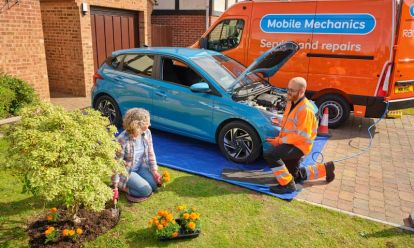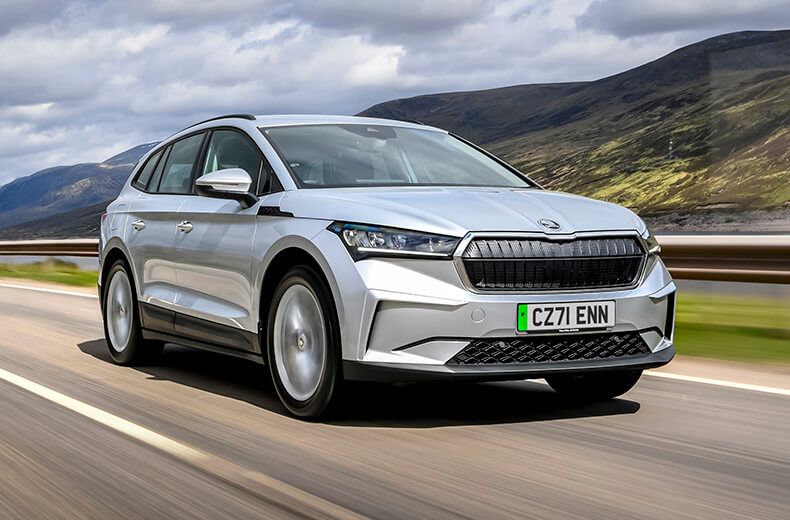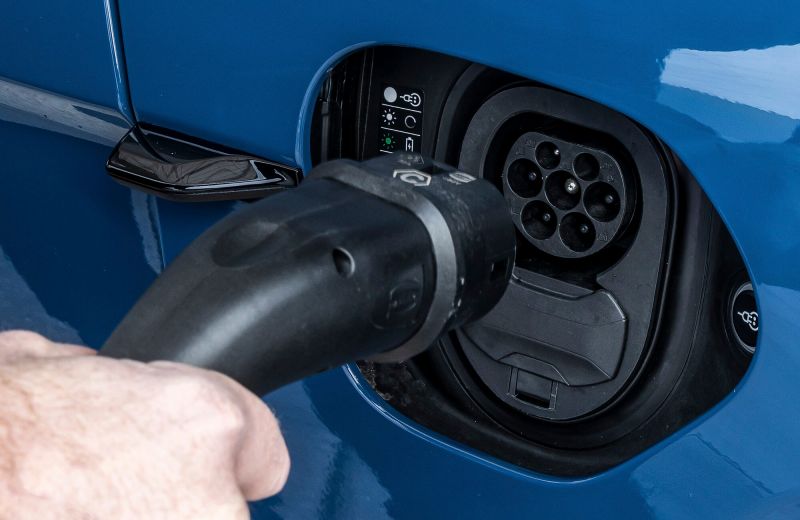While there may be debates on how prepared we are for an electric revolution, both experts and the wider industry agree that battery power is the long-term solution for reducing the impact of cars on the environment.
Whether you’re an early adopter or an EV-sceptic, though, there’s no denying electric cars can offer many advantages over traditional internal combustion engines (ICE).
In this guide, we’ll focus on the positive aspects of EVs.
Electric cars can save you money
One of the key benefits is that refilling an EV battery with electricity can be substantially cheaper than filling a car with petrol or diesel - and that particularly applies if you can charge up at home.
The most expensive way of charging an electric car is by using public rapid chargers at high traffic sites. Electric car public charging can be expensive, and it pays to shop around for cheaper rates or subscriptions to save money.
Slower 'destination chargers' are usually a far cheaper way to top up your batteries if charging at home isn't an option. However, if you do have a driveway or off-street parking solution you could add a few hundred miles of range for less than £10 - particularly if you have a cheaper overnight tariff.
The greatest savings, then, are reserved for company car drivers who pay Benefit In Kind (BiK) tax. Take a look at the example costs below, comparing a petrol Volkswagen Golf with an electric ID.3. The BiK rate (your income tax bracket multiplied by the car's value) is expressed as a percentage, and you can save thousands of pounds a year by going electric.
| Car | Fuel | C02 | VED (road tax)* | BIK rate** |
|---|---|---|---|---|
| VW Golf 1.0 TSI 110 | Petrol | 123g/km | £190 | 29% |
| VW ID.3 58kWh Pro | Electric | 0g/km | £0 | 2% |
*Standard rate – applies after first-year rate.
**Financial year 2024-2025
Another benefit of an EV is that drivers can save money when driving into urban areas. In London, for example, EVs aren’t liable for the Congestion Charge (until the end of 2025, at least), and Ultra Low Emission Zone (ULEZ) fees.
On the whole, electric cars generally cost more to buy than ICE vehicles, but the gap is narrowing. It may be almost non-existent when it comes to monthly finance payments.
Further reasons to buy an EV also include servicing, which is less complicated and usually cheaper. The same goes for extended warranties on electric cars.
- Electric car leasing explained – EV financing vs buying
- Our guides to charging an electric car
- Electric cars – a definitive guide and tips for buyers
Electric cars are better for the planet
Electric vehicles have no tailpipe emissions. This makes them much ‘cleaner’ than their ICE equivalents, particularly in urban areas where air quality is poor.
If the electricity used to charge an EV comes from renewable sources, such as wind or solar power, they can be genuinely close to zero emissions. Certain home tariffs supply renewably-sourced electricity only, while the UK National Grid is becoming less reliant on fossil fuels over time.
Because of their batteries, electric cars can be more energy-intensive to build than ICE vehicles. However, recycling EV batteries or using them in energy storage devices can prolong their service lives.
Get a car service at home
RAC Mobile Mechanics can come to you, saving you the hassle of going to a garage.



Electric cars can make your life easier
Another benefit of electric cars is convenience. If you plug your EV in at home and charge it overnight, it will always be fully charged when you wake up.
You never need to visit a petrol station again. Electric car range – the distance an EV can drive on a single charge – is improving all the time. Between 250 and 350 miles is now the norm, reducing the need to stop for public charging.
To make the most of that range, connected smartphone apps allow you to control your EV from home, check its status, and pre-heat or cool the cabin before a journey. This is called pre-conditioning.
- Electric car charger types, connectors and speeds – a visual guide
- Make EV charging easier with the RAC home charge point installation service
- The best electric cars 2022
Electric cars are enjoyable to drive
With only one gear to speak of – similar in practice to an automatic petrol or diesel car – EVs are very easy to drive. Just turn the car on, select 'Drive mode' and you’re away. The majority of EVs have a console-mounted gear selector, but a few use a ‘twist-and-go’ stalk near the steering wheel.
Instant torque from a standstill makes EVs fast to accelerate. But along with the lack of a mechanical engine, it also makes them smooth. The cabin is usually whisper-quiet, making for a very relaxed driving experience. You couldn't feel less stressed on the daily commute.
Because of their torque and powerful electric motors, electric cars can offer very serious performance. Take a Tesla Model S Plaid for example: with 1,020PS, it can get from 0-60mph in 1.9 seconds (after its initial rolling start has been subtracted).
Compare that to a 580PS Porsche 911 Turbo, which dispatches the 0-62mph dash in ‘only’ 2.8 seconds. An Audi R8 V10 Performance RWD with 570PS is slower than the Tesla, too (3.7 seconds). The Tesla EV is faster, yet can do almost 400 miles on a single charge – and carry four people and their luggage.
Along with the same high-tech safety systems that we’ve come to expect on modern cars, EVs also have a range of functions to help you eke out range. Most will also show you on a map how far your current range allows you to drive, and locate the nearest charging point.
Configurable via the car’s infotainment system, many EVs let you to programme a charging schedule, so the car will charge when electricity is cheapest. This can be actioned on a smartphone app, as can the aforementioned pre-conditioning.
A small number of EVs, such as Tesla’s family of cars, offer video games that can be played when the car is at a standstill. Some, like the Honda e, even have three-pin plug sockets, so you can connect devices such as a laptop or console gaming system. That way you can drive a few laps of Mario Kart while you charge the car itself.
- Find out more about the RAC’s electric car breakdown cover
- Buy a car with RAC confidence
- How much does it cost to charge an electric car?
Conclusion
Drivers shouldn’t be daunted by making the switch to an electric vehicle.
Among the pros and cons of an EV, the main obstacle is usually a lack of somewhere to charge at home, as not everyone has off-street parking.
However, the public charging network is improving constantly. With all the other advantages detailed above, making the switch to an EV could save you money, time and stress – and give you a cleaner conscience.

Cheaper than AA or we’ll beat by 20%^
• Roadside cover from £5.49 a month*
• We get to most breakdowns in 60 mins or less
• Our patrols fix 4/5 breakdowns on the spot











